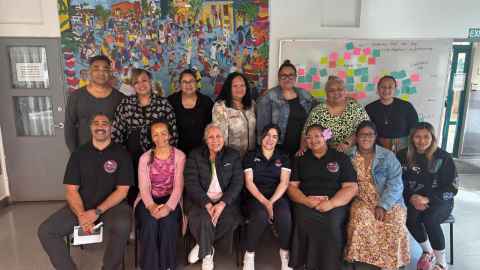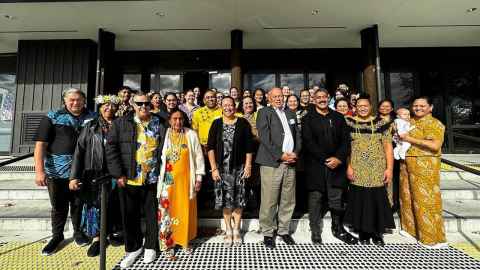Study reveals alarming burnout rates in NZ-born Pacific communities
27 November 2025
Study shows cultural and structural realities, as well as workload, contributes to high rate of burnout.

A new study published in the Journal of Racial and Ethnic Health Disparities, reveals an alarming prevalence of burnout among New Zealand-born Pacific peoples, highlighting urgent cultural and structural challenges impacting well-being.
Led by doctoral candidate Asetoa Sam Pilisi from Waipapa Taumata Rau, University of Auckland, the study has been co-designed with the Wayfinding Steering Group (WSG), a collective of NZ-born Pacific community members. It's the first large-scale quantitative study to examine burnout among NZ-born Pacific adults aged 18–65 years.
The survey, conducted online with 1,092 participants, found that nearly 90 percent reported experiencing burnout, with almost half (49.4 percent) experiencing burnout repeatedly.
Pilisi says key findings show work life was identified as the primary source of burnout for 50.3 percent of respondents, followed by family duties (28.4 percent).
“Responsibilities that prevented adequate sleep, exercise or healthy eating significantly increased the odds of burnout.”
However the practise of service, a deeply rooted cultural practice highlighted ‘financial giving with little to no boundaries’ was also a major determinant. Burnout frequency was highest among young adults aged 25-34, suggesting a period where cultural, professional and family demands peak.
The fact that nearly 90 percent of participants reported burnout is a wake-up call. It’s time to rethink how we support Pacific well-being in Aotearoa.

“This study shows that burnout among Pacific peoples is not just about workload - it’s about the cultural and structural realities we live in. Pacific communities often prioritise collective well-being over personal needs, and while that’s a strength, it can come at a cost to health when boundaries are blurred,” says Pilisi.
“We need interventions that respect Pacific values while creating space for self-care. These things can co-exist. This means workplaces acknowledging family responsibilities, and families and communities supporting healthy boundaries without guilt.
“The fact that nearly 90 percent of participants reported burnout is a wake-up call. It’s time to rethink how we support Pacific well-being in Aotearoa.”
Community Perspective
“Shifting the dial for people, connection is key. We’ve had workshops where caregivers share their experiences and realise that many of us are in the same boat. Fulfilling family responsibilities and cultural obligations are important. But sometimes we’re so fixed on the problem that we don’t see the richness in our own families, or the things that are actually working well.
“People give so much of themselves, risking burnout without realizing the impact on their own well-being. As families and communities, we need to lift the stigma associated with looking after ourselves. Understanding that our personal health matters is crucial.”

Implications for Employers and Policymakers
The findings signal an urgent need for workplace and policy reforms that recognise the unique cultural context of Pacific communities says Pilisi. Employers should consider flexible work arrangements, culturally informed well-being programs, and support systems that acknowledge family and community obligations. Policymakers can play a critical role by embedding Pacific perspectives into health and employment strategies, ensuring that interventions are not only inclusive but also culturally responsive. Addressing burnout through systemic change will help sustain Pacific workforce participation and improve overall health outcomes.
About the research
This research was co-designed with the Wayfinding Steering Group (WSG), a collective of NZ-born Pacific community members, ensuring cultural relevance and community voice at every stage. The study was supported by the Pasifika Medical Association – Knowledge Hub and 360 Tautua Community Trust.
Read the full article in Journal of Racial and Ethnic Health Disparities